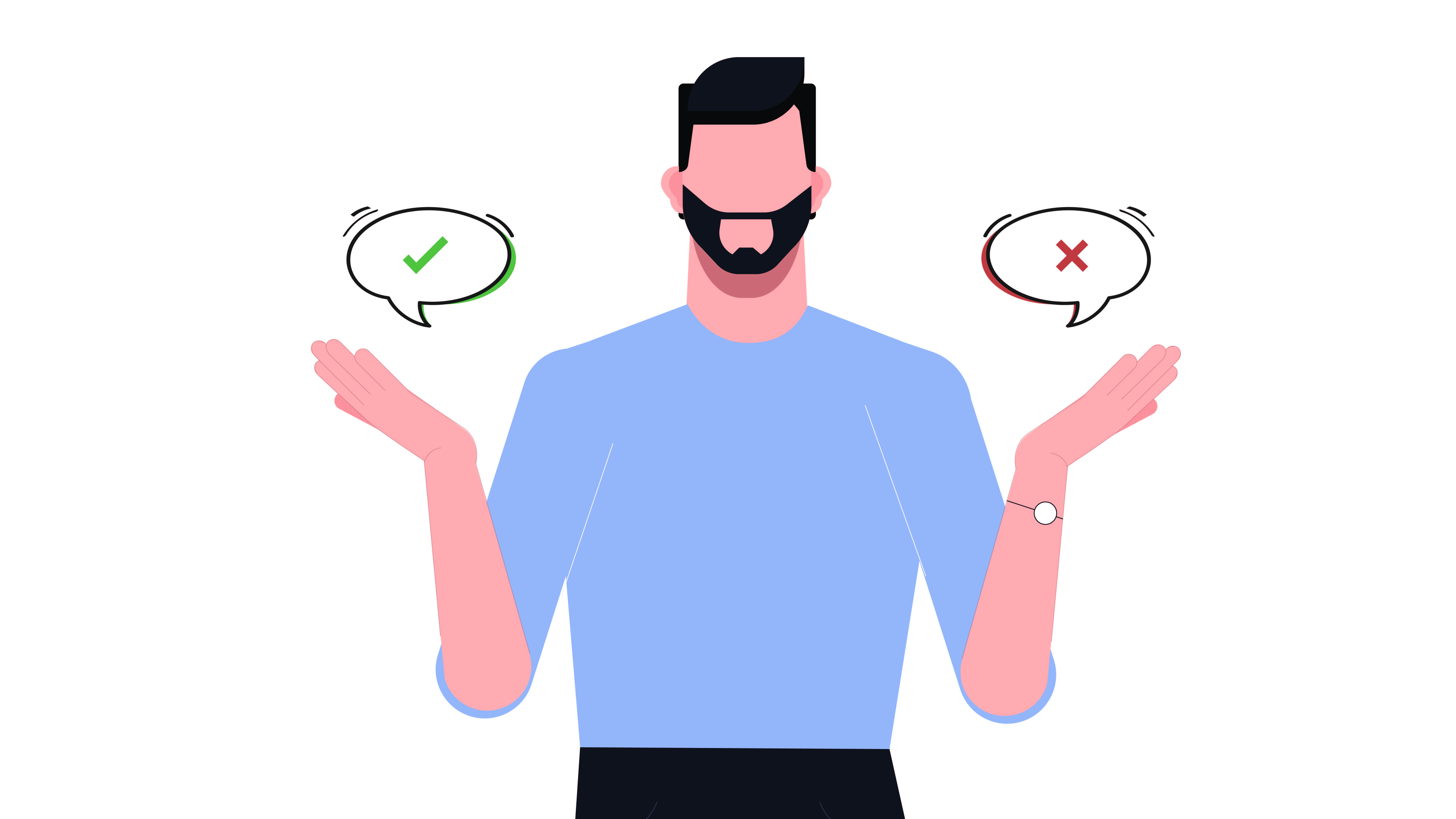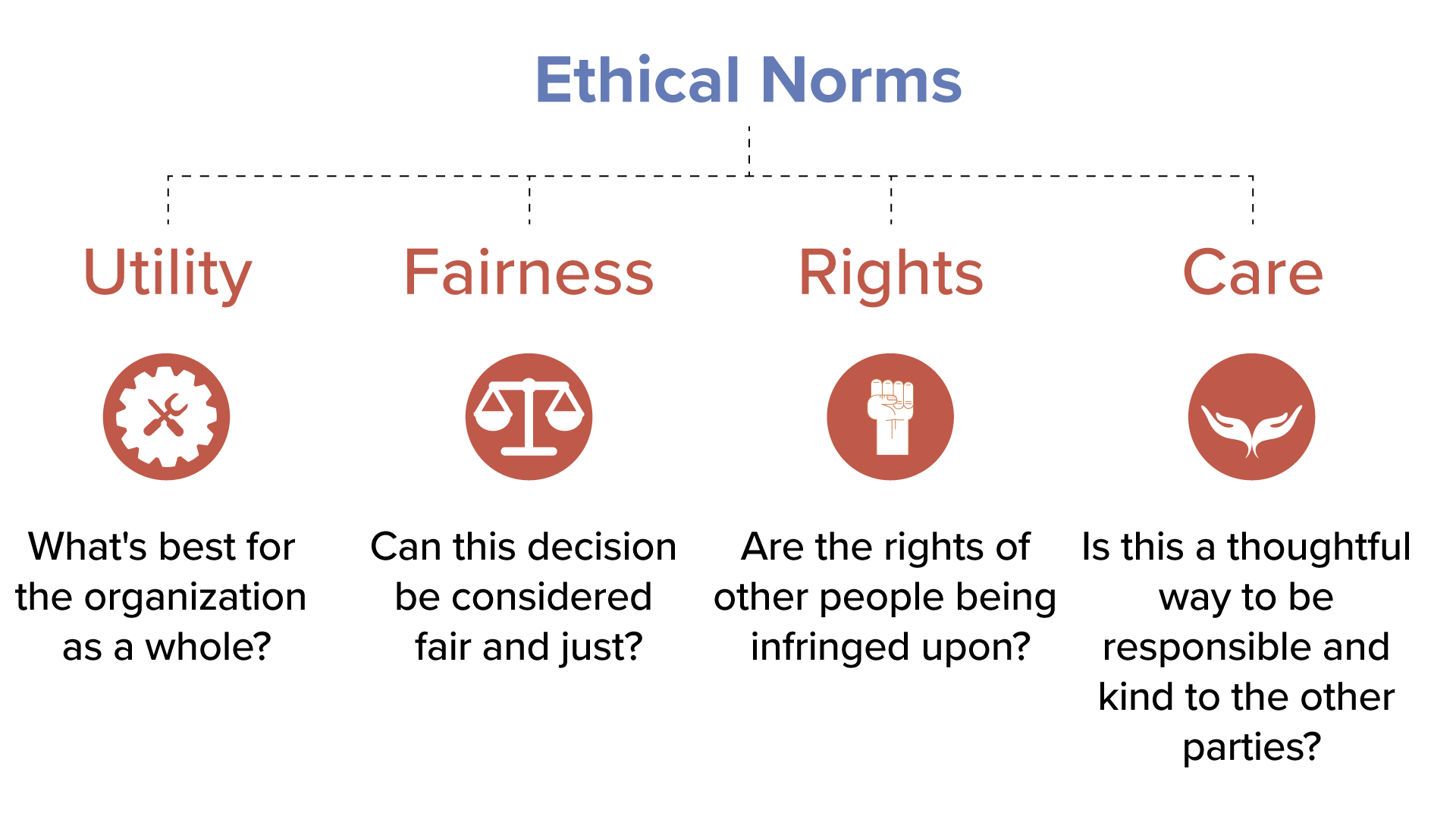Table of Contents |
Ethics is the principles of right and wrong and the morality of the choices involved.

It’s also important to define what ethics is not. Ethics is not emotions or religion. It’s not necessarily the science or norms of a society. It’s also not simply following the law, because it’s perfectly possible to follow the law yet be an unethical person.
Business ethics is closely tied to what ethics is. It’s the principles of right and wrong and the morality of the choices made in the business world. Essentially, what we’re doing is taking the principles or the definition of ethics and applying it in the business context.
Managerial ethics is simply ethics again. It is the principles of right and wrong and the morality of the choices made in the context of management.
Managerial decisions impact employee behavior. How you hire or fire, the wages you pay, or the working conditions at your business are all ethical decisions, and they can greatly impact employee attitudes and productivity.
Managerial ethics decisions can also impact behavior toward an organization. Do you have conflicts of interest or allow them? A conflict of interest is a circumstance in which a person’s or organization’s private interests could potentially interfere with their professional duties or decision-making. This conflict can lead to bias and compromise the integrity of decisions made in the business setting.
EXAMPLE
If you have an employee working for you, who also works for a direct competitor, they would have a conflict of interest because they have an advantage in both places. A manager might have a personal relationship with a supplier and favor that supplier when making purchasing decisions, even if other suppliers offer better quality or price.Is customer information kept confidential? Confidentiality is keeping private trusted data out of the hands of the public and other people who don’t need to see it.
Collusion is an attempt by businesses to conspire to the detriment of customers, businesses, or the general public.
EXAMPLE
To explain collusion, we can look at price fixing, which refers to competitors working together to raise prices or manipulate the stock market to get more profit by charging more for their product.Lastly, managerial ethics decisions can also impact behavior toward economic agents, such as your customers or your competitors, stockholders, and suppliers. Competitors can take advantage of unethical behavior, and then customers may not want to do business with you anymore.
Businesses assess ethical behavior in the following ways:

As mentioned before, these need to be considered in each case, and each case is not always clear-cut. Other factors that may affect your decision can include:
Now, businesses can encourage or discourage ethical behavior. One of the ways they do this is through a written guide that defines the policies and standards of the business, which is called a code of conduct. This is an organizational set of rules that encourage responsibility and ethical behavior.
Businesses can also help set up an ethical environment. You see, businesses have to have an environment or a culture that encourages not only participation in the ethics program but also rewards that participation and ethical behavior. One of the ways to do that is to have an employee representative who looks at each case and is responsible for the ethics of those decisions. The program should be companywide; it shouldn’t be limited to one particular set of people within an organization. The size of the company is simply the scale of the program.
An ethical business person should do the following:
Source: adapted from sophia author james howard